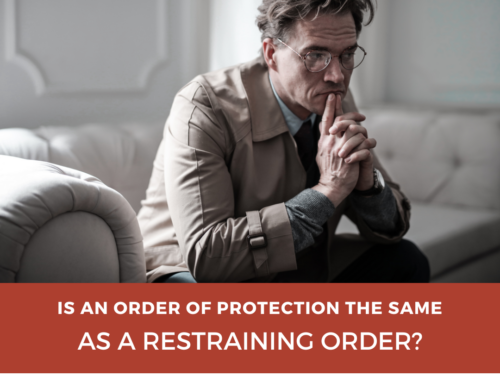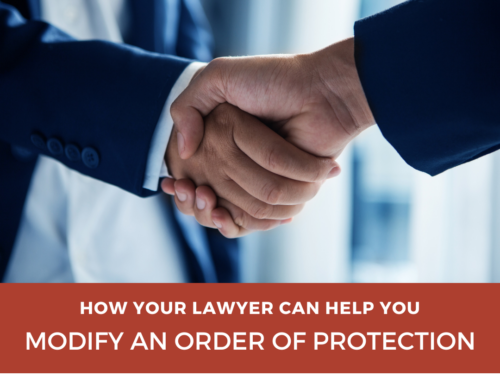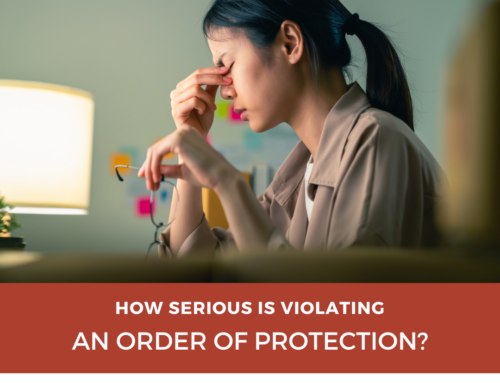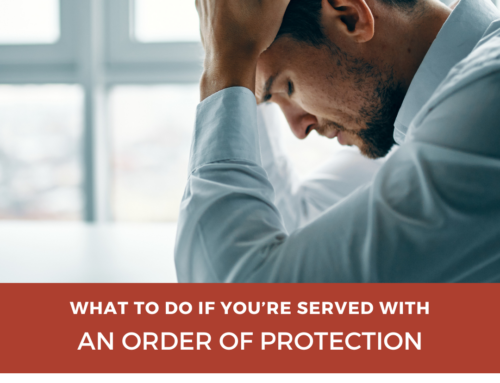When you’re grappling with a situation involving an order of protection, a flurry of questions will naturally arise. One pressing concern, especially if you’re a parent, might be whether you can still see your kids. This guide seeks to shed some light on this crucial issue.
Can You See Your Kids if Your Ex Gets an Order of Protection Against You?
As we dive into this guide, we’ll cover the following key points:
- The nature of an order of protection
- How the order impacts parental rights and visitation
- The role of family court
- Possible modifications to the order
- The need for a skilled defense lawyer
Let’s delve into each of these aspects.
The Nature of an Order of Protection
An order of protection is a legal document issued by a court to limit the behavior of someone who harms or threatens to harm another person. In Illinois, it’s important to note that an order of protection can be issued in instances of alleged domestic abuse, including between ex-spouses.
Related: What happens if someone gets an order of protection against you in Illinois?
How the Order Impacts Parental Rights and Visitation
Typically, an order of protection prohibits the respondent (the person it’s issued against) from having any form of contact with the petitioner (the person requesting the order). But what happens when kids are involved? In many cases, the court will allow some form of visitation unless there’s a threat to the children’s safety. However, the nature, duration, and supervision of these visits may be influenced by the order.
The Role of Family Court
If an order of protection is in place, the family court will decide visitation rights. This decision will balance the need to protect the children from potential harm with maintaining the parent-child relationship. It’s important to keep in mind that each case is unique, and court decisions are made based on the specific circumstances.
Related: Does a domestic battery conviction stay on your record forever in Illinois?
Possible Modifications to the Order
Depending on the case’s details, it may be possible to modify the order of protection to allow for visitation rights. This process involves presenting a compelling case to the judge about why visitation would be in the children’s best interests. You’ll need an experienced attorney to help you make this case effectively.
The Need for a Skilled Defense Lawyer
A skilled defense lawyer will be your best asset during this process. They’ll guide you through the complexities of the legal system, help you understand your rights, and work tirelessly to ensure the best possible outcome for you and your children.
Related: Can you claim self-defense in a domestic battery case?
FAQ About Orders of Protection and Parental Rights
Check out these commonly asked questions about orders of protection and parental rights. If you don’t find the answers you need here, please give our office a call—we’ll be glad to provide you with the information you need.
Can an order of protection completely bar me from seeing my children?
It’s possible, but it’s not automatic. Courts typically aim to maintain the parent-child relationship unless there’s a danger to the child’s safety.
Can I contest an order of protection?
Yes, you can. Your defense attorney can help you navigate the legal process of contesting the order.
What if my ex is using the order to keep me away from our children unfairly?
If you feel this is happening, it’s essential to discuss it with your divorce attorney and your criminal defense attorney. They can strategize the best legal approach to address the situation.
Related: How a domestic battery defense lawyer can help you fight false allegations
Being subjected to an order of protection is a serious matter, particularly when your relationship with your children is at stake. While the situation can be stressful and overwhelming, remember that you have rights, and the court typically strives to maintain the parent-child bond. It’s crucial to enlist an experienced defense lawyer’s services to navigate this process and advocate for your rights.
Do You Need to Talk to an Attorney About Domestic Battery Defense?
If you need to talk to a domestic battery defense attorney in Illinois, we’re here to help. Call us at 847-920-4540 now – we’ll be happy to give you a free consultation and talk to you about your options.







Leave A Comment
You must be logged in to post a comment.